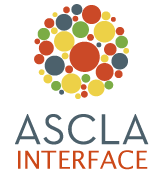Submitted by Gina Persichini, Networking Consultant, Idaho Commission for Libraries
According to a 2011 report by the Federal Communications Commission (FCC), an estimated 232,000 Idahoans—primarily in the state’s vast rural areas—do not have high-speed Internet access. But the Idaho Commission for Libraries (ICfL) has taken the lead to help close that gap with an initiative to increase broadband Internet connectivity in public libraries throughout the state. Thanks to grants from the Broadband Technology Opportunities Program (BTOP) and the Bill & Melinda Gates Foundation, in 55 of Idaho’s least connected public libraries Internet connectivity has been increased to an average of 11 Mbps, up from an average of 1.5 Mbps, and 530 new computers have been installed.
Expanding public access technology
Nearly 70% of Idaho’s 141 public library locations are their community’s only free Internet access point. Now, access to high-speed Internet sources is within the reach of many Idahoans at their public libraries. Last year, for example, the public library in Preston, ID received 11 Mbps of broadband Internet connectivity and 12 new computers. The library in Sandpoint, ID received 45 Mbps and 22 new computers through Idaho’s “online @ your library” BTOP project. Libraries report that they are now able to do online training that wasn’t possible before the expanded broadband, and their users are thrilled with the faster capabilities. Some users with Internet access at home come to the library because it’s faster.
In addition to increased broadband access and additional computers provided through the grants, most of the libraries eligible for the connectivity upgrades received Wi-Fi equipment to enable people who bring their own computers to the library to access the Internet.
Expanding resources
In addition to expanding broadband and public access technology in the state’s least connected libraries, ICfL is partnering with other state agencies to bring a whole new world of online resources to residents throughout the state. Building on the statewide electronic reference tools at Libraries Linking Idaho (LiLI) program, Idahoans can now access e-government, employment, education, and job-skills resources through libraries’ public computing centers and through the Commission’s portal at lili.org.
New BTOP-funded online resources introduced to Idahoans through “online @ your library” include:
- Scout Video Collections with short videos/animations for every school subject and full-length Idaho Public Television programs about Idaho.
- Maximize Your Job Search, an online workshop and workbook developed by the Idaho Department of Labor with tips for networking, the hidden job market, using social media, and more—in English and Spanish.
- LearningExpress Library (LEL), an online learning center with study guides and practice tests for GED, SAT, ACT, GRE, CLEP and more; job-skill tutorials; career certification preparation; and computer skills training.
Partnerships
“online @ your library” BTOP partners include the Idaho Department of Labor, Idaho Public Television, Idaho Professional-Technical Education/Adult Basic Education, the State Board of Education, the State Department of Education, and Idaho Regional Optical Network (IRON). Our BTOP partners have provided resources, collaborative opportunities, promotion, and other support. Throughout the project we have connected project partners and libraries at the local level, beginning with a statewide project launch in November 2010 and continuing with spring 2011 statewide “Connecting Resources & Partners Workshops” to provide hands-on access to the new online resources for libraries and their community partners.
We are currently in the middle of 25 statewide “Credible Connections” workshops that provide opportunities for libraries and community leaders to network and explore resources that can be leveraged to address local economic development as well as college and career readiness for Idaho students. Along with library staff, representatives from USDA Rural Development, Department of Labor, Adult Basic Education, local economic development groups, city officials, school officials, and Small Business Development Centers have participated. Conversations have been enlightening, connections meaningful, and next steps enthusiastically planned.
As another result of the partnership with Labor, many BTOP-connectivity libraries were able in summer 2011 to offer additional help to their computer users in the form of digital literacy tutors hired through Labor’s Workforce Investment Act (WIA)-funded Idaho Youth Corps. This program will be expanded in summer 2012 to include all interested public libraries.
Down the road
ICfL continues to build on partnerships with other agencies and organizations and provide opportunities and encouragement for public libraries to do the same with their local partners. We continue to promote statewide the expanded public access technology and online resources available through Idaho public libraries.
Not every home needs broadband Internet for everyone to connect to Web resources,” says State Librarian Ann Joslin. “Free public access computing at the library has the potential to efficiently provide the connection. Online resources that focus on job skills, education, and health help economic development. It’s exciting to see how a rural community might be revitalized as people come to their local public library to get online.”
See more about the “online @ your library” project at http://libraries.idaho.gov/online .
